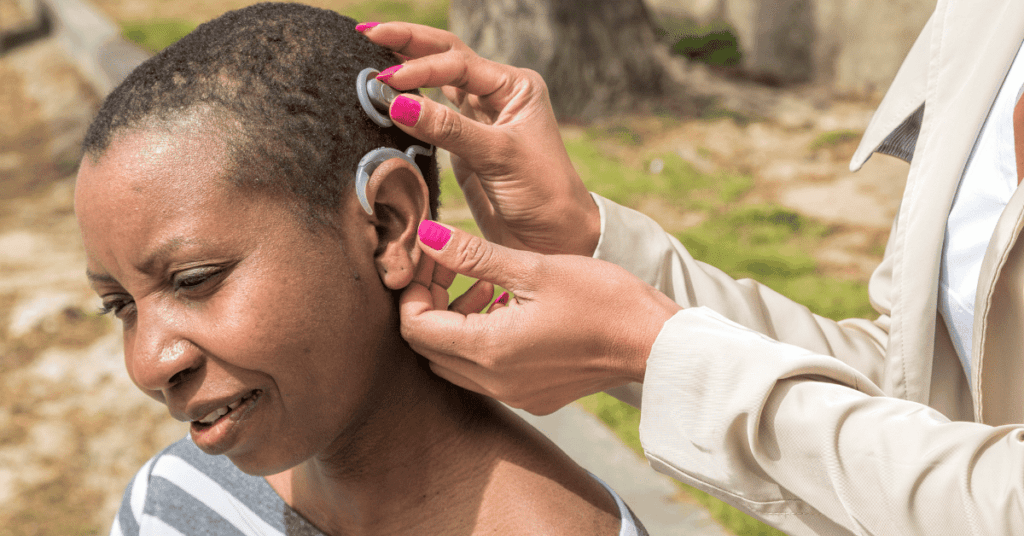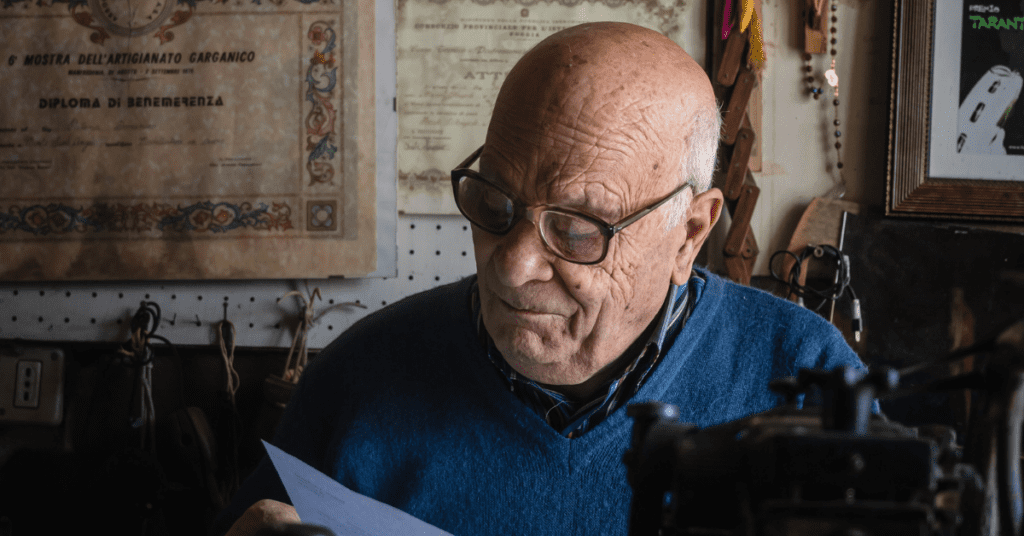Tinnitus is a complex auditory condition that can manifest in various ways, often described as a persistent ringing or buzzing in the ears. Understanding how tinnitus develops and potentially worsens is crucial for effective management and treatment. Like many health conditions, tinnitus has the potential to worsen over time, particularly if left untreated or not properly managed. While it’s not guaranteed that the condition will deteriorate with age, the risk is significant enough to warrant early intervention.
Addressing tinnitus promptly is especially crucial for those with inner ear damage or malfunctions, as it can have a substantial impact on both physical and mental well-being. To gain a deeper understanding of tinnitus and its relationship with age, we’ll explore the underlying causes and connections between hearing loss and tinnitus.
Common Causes Of Tinnitus
Although many people are familiar with common sources of tinnitus onset, like loud noises, there may be other factors that can cause tinnitus that are less well understood or easily recognized. One of the most common sources of tinnitus actually occurs as a result of hearing loss, the most common of which is described below.
"Treble Health helped me reduce my tinnitus by about 80%, and now I can live my life again!"

"Treble Health helped me reduce my tinnitus by about 80%, and now I can live my life again!"
– Steve D.
Book a free consultation to learn which Treble Health solution is right for you. Join Steve and thousands more who have found lasting tinnitus relief.
Hearing Loss
Hearing loss can occur as a result of advanced or advancing age, but there are other causes that can lead to the loss of one’s hearing. Being able to hear sounds frequently decreases with age, but it is not a definitive feature of age, nor is tinnitus. The common forms of hearing loss include:
- Sensorineural Hearing Loss. Sensorineural loss occurs following exposure to loud sounds, age-related losses, inner ear disorders (like Meniere’s Disease), and damage to cochlear hair cells or auditory nerve function. Single or prolonged noise exposure can cause acute or chronic tinnitus, as can infections of the ear or an upper respiratory infection.
- Conductive hearing loss. Conductive hearing loss can be caused by ear infections (otitis externa, otitis media), and abnormal bone growth on the middle ear bones (called ossicles), called Otosclerosis. Conductive hearing loss can also be caused by simpler issues, such as high amounts of wax within the ears. It can affect different age groups, and can have as great an effect on quality of life as sensorineural hearing loss, if left untreated.
- Mixed Hearing loss. As its name suggests, mixed hearing loss is a combination of sensorineural and conductive hearing loss types.
- Head injury. A head injury can also cause hearing problems and interfere with the brain interpreting auditory signals.
- Illness. Illnesses like an upper respiratory infection can also lead to the onset of subjective tinnitus, as it can impair the function of blood vessels, lead to dysfunction within the eustachian tubes, and more.
- Certain medications. There are some medications that can have ototoxic effects on the ear, which means that the mechanisms within the ear that process sound can be negatively impacted.
Although the precise mechanism behind hearing loss is not always known, loud noises, impaired blood vessels, and even infection can all lead to symptoms of tinnitus, or phantom sounds without an external sound to corroborate.
What Causes Tinnitus In Seniors?

Presbycusis, or age-related hearing loss, is the most common cause of tinnitus onset, but cardiovascular health, diabetes, and other forms of hearing loss may also be to blame for the onset of lost hearing. While it may not be uncommon to see someone of advanced age using hearing aids, not every senior will experience significant changes to their ears, or tinnitus. Because mental health issues can arise in response to the onset of phantom sounds without an external sound, any hearing loss or changes to hearing should be reported to a doctor, even in those of an advanced age.
Why Does Tinnitus Occur With Age-Related Hearing Loss?
Age related hearing loss occurs gradually over time, due to the breakdown of the hair cells and auditory connections within the inner ear. The loss of auditory input as a result of hair cell breakdown and auditory connection loss means that the brain experiences misfired electrical signals within auditory neurons, and the perception of phantom noise that has come to be known as tinnitus occurs — the hearing center of the brain is essentially compromised. Because age related hearing loss tends to occur slowly, over a long period of time, the loss of input eventually reaches a “tipping point,” or a point at which enough auditory information is missing to result in phantom noises or other hearing damages and losses, causing tinnitus and even changes to mental health.
Factors That Contribute To Tinnitus Worsening With Age
Medical Conditions
High blood pressure and diabetes are both linked to a greater risk of developing hearing loss, which is one of the main causes of tinnitus. Older adults who are aging, and are already at risk for age related hearing loss and displaying symptoms of medical conditions like high blood pressure and diabetes are more likely to develop tinnitus as they age, or see existing tinnitus worsen along with these conditions. Dealing with both the medical conditions themselves and tinnitus can improve quality of life, making tinnitus a far less bothersome sound.
Exposure To Loud Noise
Exposure to loud noises is among the top causes of tinnitus. If a person has been persistently exposed to loud sounds without proper hearing protection over the course of their life, they are more likely to experience age related hearing loss, in addition to accelerated damage to the inner ear or hearing nerves as a result of the loud noise exposure they have experienced.
Ear Infections And Injuries

Seniors are at greater risk for falling down, which can result in head trauma or ear injury. Ear wax build up is another common problem in this patient population, and is a known contributor to tinnitus. Infections of the ear are not particularly common among seniors, but are often overlooked amongst other medical conditions and can go untreated. These, too, can lead to changes in hearing and tinnitus.
Lack Of Treatment
Ignoring the onset of tinnitus symptoms and failing to seek a professional’s help to determine the presence of an underlying condition is another significant factor that can contribute to worsening tinnitus. Hearing aids are among the more widely recognized and utilized treatments, but there are numerous other tinnitus treatments that can help increase quality of life and decrease symptoms.
Unless Treated At An Early Stage, Tinnitus May Worsen With Age
As with most medical conditions, early intervention is key! Hearing loss is the most common culprit of ringing, squealing, buzzing, hissing, or roaring that is characteristic of tinnitus, and 90% of populations with tinnitus also present with an underlying cause of hearing loss. Because hearing loss tends to worsen with age, 1 in 3 people between the ages of 65 and 74 has symptoms of hearing loss, and over half of people over the age of 74 show signs of hearing loss.
Risks Of Untreated Hearing Loss And Tinnitus In An Aging Population
Untreated SNHL (sensorineural hearing loss) is another condition that has been linked to a rapid decline in cognitive ability. Seeking early treatment when you experience tinnitus and reduced hearing symptoms can help reduce the likelihood of experiencing cognitive decline and other negative impacts caused by inaccurately or ineffectively recognizing and interpreting sound waves.
Reducing the psychological components of tinnitus early on (think stress, distraction, distress, and sleep disturbances) can help reduce the risk of engaging in a vicious cycle involving the limbic system, central nervous system, and auditory systems. These systems can all react strongly to tinnitus and respond as though the body is in danger.
Reducing The Risk Of Tinnitus

Although it is not possible to prevent aging, there are simple steps only you can take to support your health and reduce the likelihood of experiencing tinnitus or the adverse effects related to it. These steps include:
- Avoiding long term exposure to loud sounds or loud machinery, or using adequate hearing protection
- Maintaining a healthy lifestyle by avoiding smoking and consuming a diet low in nutrients
- Engaging in heart healthy habits to reduce the likelihood of developing hypertension or diabetes, as both are linked to the loss of hearing, and therefore tinnitus.
- Keeping track of all medications and altering dosages as necessary, with the guidance of your medical doctor, to prevent damage to the ear
- Seeking professional treatments right away, to prevent the likelihood of damaging hearing health
Tinnitus, while not fully understood, is often linked to various risk factors that can be managed to some extent. Long-term exposure to loud noises or machinery can contribute to its onset, making hearing protection essential. Lifestyle choices such as smoking and poor diet can also exacerbate the condition. Medical conditions like hypertension and diabetes have been found to correlate with tinnitus, underscoring the importance of heart-healthy habits. Medications with ototoxic effects could potentially harm the ear, so keeping track of dosages and consulting a medical professional is advised. While aging is an uncontrollable factor, taking these preventative steps can reduce the likelihood of developing or worsening tinnitus.
When To Schedule An Appointment With Your Doctor

The current recommendation suggests that all adults undergo a baseline hearing test by the age of 50. This allows populations to determine the risk factor for any potential damage done to your system, and allows you plenty of time to make necessary lifestyle changes. Any changes in hearing or occasional or constant tinnitus warrants an appointment with an audiologist or otolaryngologist (ear, nose, and throat specialist (ENT doctor)) to evaluate your auditory system – even before age 50.
What Can I Do To Reduce The Impact Of Tinnitus As I Age?
The most important steps to take to reduce the impact of tinnitus as you age include the following:
- Early intervention and treatment, to quickly address all hearing concerns.
- Mental health evaluation, to make sure mental health is not negatively impacted by signs of tinnitus or loss of hearing.
- Continual checking in with systems of support and stress relief.
- Continual evaluation of overall physical health, including the efficacy of exercise and healthy dietary habits.
Although these steps cannot ensure that tinnitus does not develop, it can reduce the risk factors associated with tinnitus onset.
Can You Treat Ringing In The Ears?
Absolutely! While tinnitus is not considered a curable disease, it is a treatable condition and many evidence-based treatments are available, the most common of which we have identified below.
Possible Treatments For Tinnitus In Seniors
Tinnitus treatment for seniors may not differ too significantly from treatments for the general population; however, there may be some additional components involved in patients of an advanced age, including additional conditions that can contribute to tinnitus development or exacerbate symptoms.
Hearing Loss Treatments

Cochlear implants and hearing aids are the most common implements used to make sure that external sounds are heard, and everything, from speech to soft music, can be taken in and understood.
Tinnitus Treatments
Tinnitus Retraining Therapy (TRT), Cognitive Behavioral Therapy (CBT), and sound therapy can all be used to directly address tinnitus symptoms. These treatments can be delivered by an audiologist, and can help address the many aspects of tinnitus, including the mental and emotional experiences often incurred when tinnitus symptoms arise.
So, Does Tinnitus Get Worse With Age?
In summary, tinnitus is a complex condition often associated with hearing loss, and its relationship with aging is not straightforward. The condition can be triggered or exacerbated by various factors including age-related hearing loss, high blood pressure, diabetes, and exposure to loud noises. While not everyone will experience tinnitus or hearing loss as they age, those who do may face worsening symptoms if left untreated. Early intervention is crucial for managing both the physical and psychological impacts of the condition. Treatments such as cochlear implants, hearing aids, and various therapies are available to improve quality of life. Given the potential for tinnitus to negatively affect mental and physical well-being, especially in seniors, proactive medical consultation and treatment are strongly advised.
Next Step: Book Free Consultation
- 75% of patients reduced their tinnitus within three months after following our recommendations.
- "I feel like Treble Health literally gave me my life back." - Randy S. (verified customer)
- Join thousands of people who have reduced their tinnitus after scheduling a free consultation.












